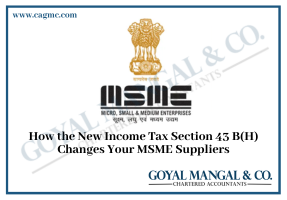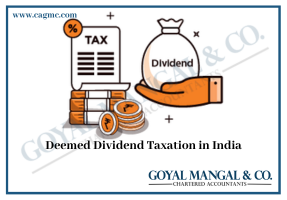 Export-Import Policy or better known as Exim Policy is a set of guidelines and guidelines related to the import and export of goods. The current policy covers the period 2002-2007. On March 31 of each year and modifications, enhancements, and new schemes become effective from April 1 of each year. All types of changes or modifications related to the Exim policy are usually announced by the Union Commerce and Industry Minister who coordinates with the Ministry of Finance, Directorate General of Foreign Trade, and regional offices. Let us discuss the Exim Trade through Courier/Post – A Growth Enabler.
Export-Import Policy or better known as Exim Policy is a set of guidelines and guidelines related to the import and export of goods. The current policy covers the period 2002-2007. On March 31 of each year and modifications, enhancements, and new schemes become effective from April 1 of each year. All types of changes or modifications related to the Exim policy are usually announced by the Union Commerce and Industry Minister who coordinates with the Ministry of Finance, Directorate General of Foreign Trade, and regional offices. Let us discuss the Exim Trade through Courier/Post – A Growth Enabler.
| Table of Contents |
Introduction to the field of foreign trade
All nations must import raw materials and finished goods from neighbors and trading partners to strengthen their economies; moreover, they must trade surplus resources produced on their home soil to obtain the necessary funds.
If we look at the chapters in History, we will see that many nations use high taxes to control the number of imports; however, the trend is different in the modern world. Today, countries are interdependent and willing to import goods, assessing the comparative costs of the items and deciding which option best suits their commercial interests.
India’s need for economic growth has led us to import many capital goods. The balance of trade is now in a critical condition due to the larger volumes of imports compared to the export businesses practiced throughout the country.
What is Export-Import EXIM Policy?
Export-Import Policy or Exim Policy is a set of guidelines and instructions governing the import and export of products. Section 5 of the Foreign Trade (Development and Regulation) Act, 1992 gives the Government of India the power to notify its Exim policy for five years. Every year on March 31, import and export policies in India have changed, and improvements and new programs come into force on April 1. In cooperation with the Directorate General of Foreign Trade, the Ministry of Finance and its network of regional offices, the Minister of Trade and Industry announces any changes or additions to the Exim Policy.
What are the objectives of the Exim Policy?
- Increase the growth of India’s exports and imports.
- Stimulate long-term economic growth by increasing access to intermediate products, components, consumables, basic raw materials, and capital goods.
- Improve the competitiveness of the agricultural industry and services, create new job opportunities and support the achievement of internationally recognized quality standards.
- To provide high-quality services and goods at an affordable price. Canalization is a critical part of the Exim policy as it restricts the importation of certain goods to designated agencies. For example, only SBI and a few foreign banks or recognized organizations can import gold in bulk.
Significance of the new EXIM policy
The latest policy clarifies India’s trade position at the global level. This is possible through a thorough analysis of the SEZ system and by changing the geographical status of the country’s export basket. These initiatives helped resolve earlier disputes with the WTO until 2019.
This new policy helped the government reduce export incentives by replacing schemes like MEIS and SEIS with a separate RoDTEP scheme that offered an incentive structure of ₹12,454 crores.
This new policy will help the government focus on upgrading existing port infrastructure, local supply chains, and warehouses. The estimated turnaround time for all Indian cargo ships ranges from approximately 3 full days. On the other hand, the global average is just 24 hours. This should be given maximum attention.
Impacts of EXIM policy
From the point of view of developing economies, India’s foreign trade policy is critical. It would be a daunting and expensive task if we did not have a foreign trade policy. For example, India’s iron and coal reserves are well-established business opportunities, but to expand this sector, we need to import technical know-how from the countries that pioneered it.
Our country could be at a standstill due to our inability to meet the demand for petroleum products. The absence of a foreign trade policy would seriously disrupt the economic growth of our country.
India has been one of the world’s most important financial and political players for some time now. India’s current trade policies, economic reforms, and inherent strengths are all factors contributing to this increase in global demand for Indian products and services. The country is also investing in infrastructure and technological advancements that are likely to positively impact the economy in the coming years.
What you should know about the Export Federation of India?
The Export Federation of India or FIEO is the apex body coordinating the operations of export promotion organizations. FIEO is headquartered in New Delhi.
The global market is learning about the fiery spirit of Indian entrepreneurs thanks to the continuous efforts of this governance body.
Final words
India’s export and import policy is governed by the Foreign Trade Development and Regulation Act, of 1992. India’s Foreign Trade Development and Regulation Act is responsible for the regulation and promotion of foreign trade. The new Foreign Trade Act replaced the Import and Export Act, of 1947 and DGFT is the main governing body for the Exim policy.
India’s export-import policy, also known as foreign trade policy, aims to increase export performance, promote foreign trade and maintain a favorable balance of payments. Exports and imports from India and export promotion policies and procedures are part of India’s EXIM policy, a set of various government decisions in foreign trade. The central government prepares and promulgates trade policy.







